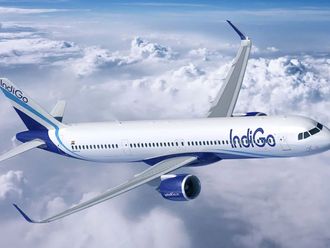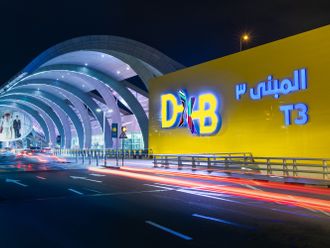It would be unfair to describe the inability of Gulf Cooperation Council (GCC) officials to resolve all outstanding issues related to the launch of the customs union project as a setback for the initiative.
To be sure, implementation of the project was never going to be easy given the need to reflect diverging interests of the six-nation grouping.
GCC officials, including foreign and economic ministers, discussed the progress of the customs union project along with other items on the agenda during a scheduled meeting in Jeddah last week.
However, some progress — no matter how small — was made, namely agreement on electronically linking customs grids.
Launched in 2003, the customs union scheme has repeatedly failed to meet deadlines. The original plan called for full implementation in a span of two years but GCC leaders decided to delay implementation of the project for two years during their annual summit in Abu Dhabi in late 2005.
Yet, until recently, GCC officials devoted more resources to two other projects — the Gulf Common Market (GCM) and a monetary union programme — than to the customs union. GCC countries started implementation of GCM this year. The monetary union also kicked in albeit without the participation of the UAE and Oman.
In reality, the customs union scheme has encountered serious challenges ever since its inception notably relating to developing a formula for fair distribution of customs duties among member states.
Any formula must take into account the port of entry and final destination of goods.
Trade pacts
Yet another problem concerns some member countries showing favours to certain countries while carrying out external trade. This is true in the case of Bahrain and Oman, which have separate free trade agreement (FTA) accords with the US. Undoubtedly, adoption of a unified external trade policy with non-members forms a cornerstone of the scheme.
Another issue requiring concrete solutions concerns ensuring smooth movement of trucks carrying goods at crossing points. This is particularly needed on the King Fahd causeway linking Bahrain to Saudi Arabia. Suggested solutions call for ensuring availability of visas for non-GCC drivers around the clock on the one hand and sufficient support at entry points.
Ostensibly, renewed interest in finalising the customs union partly reflects desire of the Secretary General of the GCC Abdul Rahman Bin Hamad Al Attiyah for starting negotiations with the World Trade Organisation (WTO). The intention is to turn the GCC into a customs union project meeting WTO requirements with respect to rules and procedures.
Certainly, it makes sense for Al Attiyah to get the talks under way before his tenure as secretary-general of the GCC ends.
As part of a policy of rotation, Bahraini national Dr Abdul Latif Al Zayani is likely to succeed Al Attiyah, a Qatari, in April 2011 after winning endorsement of GCC leaders during their upcoming summit in Abu Dhabi.
Among other things, Al Attiyah can claim credit for preparing the bloc for trade agreements with other parties. In late 2008, the GCC signed an FTA with Singapore, the first for the bloc collectively. Again, in 2009, the GCC clinched an FTA with the European Free Trade Association (EFTA) comprising Switzerland, Norway, Iceland and Liechtenstein. The pact with EFTA was the first of its kind for GCC with any economic bloc.
Cooperation
And earlier this year, the GCC signed a memorandum of understanding (MOU) with the 19-member Common Market for Eastern and Southern Africa or Comesa. The MOU calls for commercial and economic cooperation between the two blocs.
In short, there is no point in clamouring for completion of the ambitious customs union initiative without thoroughly resolving outstanding issues.
The writer is a Member of Parliament in Bahrain












